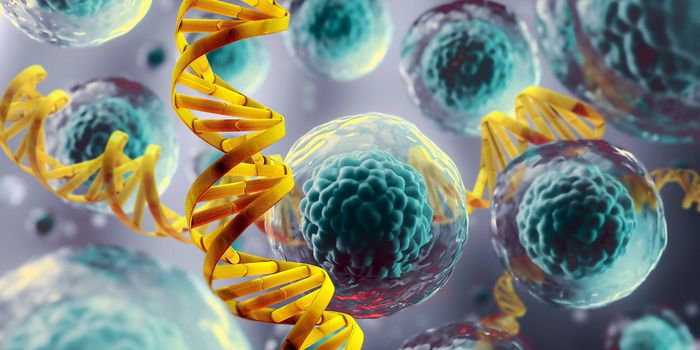Age Matters! Young Adults May Need Different Cancer Therapies
The incidence of various cancers, including multiple myeloma, colorectal, kidney, and pancreatic cancer, is steadily rising in young adults (typically defined as patients diagnosed before age 50). Despite the increase in cancer rates in this vulnerable population, most cancer research occurs in patients with later-onset disease. This inconsistency means that the information available to doctors to determine the best course of treatment for their patients, regardless of their age, is based on research done with older patients.
A team of researchers at Mt. Saini recognized a need to understand the similarities or differences between cancer in young versus old adults. They addressed this critical question in a recent study published in Cell Reports. The report compared the genetic profile of tumors from 14 different types of cancer, all diagnosed in patients under 50.
The study utilized data from 1,757 young adults and 3,608 patients older than 50 included in The Cancer Genome Atlas (TCGA). The TCGA is a joint project between the National Cancer Institute and the National Human Genome Research Institute, which characterized the genetic makeup of over 20,000 cancer samples. The TCGA includes around 2.5 petabytes (that’s 1,024 terabytes for those counting) of genomic data, which is publicly available for researchers to access.
The researchers compared factors including genetic mutations, chromosomal alterations, the presence of immune mediators in the tumor, and the response to standard cancer therapies between the two sets of tumors. The report details similarities and differences between the genetic profiles of tumors in young and old adults.
Interestingly, the researchers found significant differences in immune mediators within the tumors. Interestingly, the researchers found significant differences in immune mediators within the tumors. A better understanding of these differences could significantly impact treatment decisions as the immune status of a tumor, also known as the tumor microenvironment, has important implications on both prognosis and treatment response.
One example of the impact of the tumor microenvironment on treatment response appeared in the analysis of head and neck tumors. Late-onset head and neck cancer were associated with prolonged survival following treatment with immunotherapy. The poor prognosis in early-onset head and neck cancer patients corresponded with fewer cytotoxic T cells, the immune cells responsible for attacking and killing cancer cells.
The authors conclude that their assessment uncovers diverse genetic profiles in early- and late-onset tumors. The differences, primarily those occurring within the tumor microenvironment, establish a solid rationale to explore different treatments based on a patient's age at diagnosis. Inhibitors that target specific gene mutations and immunotherapies that rely on anti-cancer immune cells' presence will not have the same degree of effectiveness against such diverse tumors.
The findings suggest that a more comprehensive analysis of individual tumors may better inform treatment decisions for cancer patients. Further, with the cancer incidence in young adults on the rise, there is a strong need for more studies to develop safe and effective therapeutic options for this diverse group of patients.
Sources: The Lancet, American Cancer Society, Cell Reports, NCI









